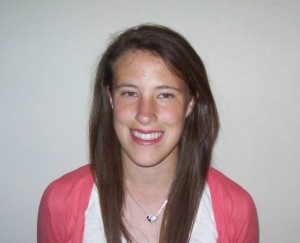This is the next in a series of posts by recipients of the Career Services Summer Funding grant. We’ve asked funding recipients to reflect on their summer experiences and talk about the industries in which they’ve been spending the summer. You can read the entire series here.
This entry is by Courtney Bliler, COL ’16
Over the course of my internship, I have conducted research on a wide variety of issues in the Middle East and North Africa Region—from recent shifts in Turkish foreign policy and the history of identity construction in Syria, to the impacts of the Iranian nuclear agreement on the Gulf and the U.S.’s non-Gulf allies and the rapidly evolving conflict in Yemen. I usually have a different topic of research every day, which has made my work relevant, insightful, and exciting. The sheer variety of tasks I have been given during the internship has provided me with a broad-based yet in-depth understanding of major social, political, and security issues in the Middle East and of U.S. global and regional strategy and policy. All of this will be undoubtedly helpful in writing my senior thesis and then preparing for a future career in U.S.-Middle East Policy, inside or outside of government. I was also given the chance to author and publish articles during my internship. Besides its résumé value, the experience improved my writing skills and honed my ability to analyze emerging trends and to apply scholarly theories of international relations and political science to recent events.
Some of the most memorable experiences from my D.C. internship, however, have come from events I have attended. The Center where I was working, for example, hosted U.S. Assistant Secretary of State for Near Eastern Affair Anne Patterson, who, with a rare display of candidness for a diplomat, spoke about the current and future states of U.S. policy in the Middle East. I also had the unique opportunity to attend the State Department’s Generation Prague Conference on nuclear non-proliferation and arms control, which coincidentally took place the same week the Iranian nuclear agreement was announced. By surprise, an exhausted Wendy Sherman, U.S. Under Secretary of State for Political Affairs and one of the key American negotiators at the P5+1 and Iran nuclear talks in Vienna, gave an improvised but emotional speech at the conference just hours after she helped complete the Iranian nuclear deal and returned to the U.S. after long weeks of negotiations. At times, these experiences left me with the perception that I was a direct witness to history-making and political change, however miniscule my part.
One especially rewarding aspect of working in a D.C. think tank is seeing firsthand the revolving door between the government, private enterprise and think tank sectors. No one in D.C. is a one-trick pony—people are constantly shuffling jobs every few years, constantly trying their hands at new things. D.C. may not be Silicon Valley, but is nonetheless a vibrant, youthful metropolis with an experimental and entrepreneurial spirit. Above all, I have learned through my experience in D.C. that there is no unilinear career path, no single formula, no clear trajectory for a successful career in D.C.—something I have found simultaneously encouraging and daunting. On one hand, my experience this summer has reassured me that there are an infinite number of ways by which I can achieve my long-term career objectives. On the other hand, it seems that the diversity of opportunities and possible next moves has left me more uncertain than ever about what should be my first step.
But I have learned that having this uncertainty is perfectly okay. My summer internship has afforded me the valuable chance to develop important and versatile skills and expertise in a way that has bolstered my confidence to chart unknown waters. I see myself eventually settling into the D.C. orbit, but my summer internship experience has opened my eyes to career paths and opportunities I had never before considered.



I don’t think changing job’s is a good thing for the future. All employees looking for a person who can be a part of their business success.
DC people might think differently.